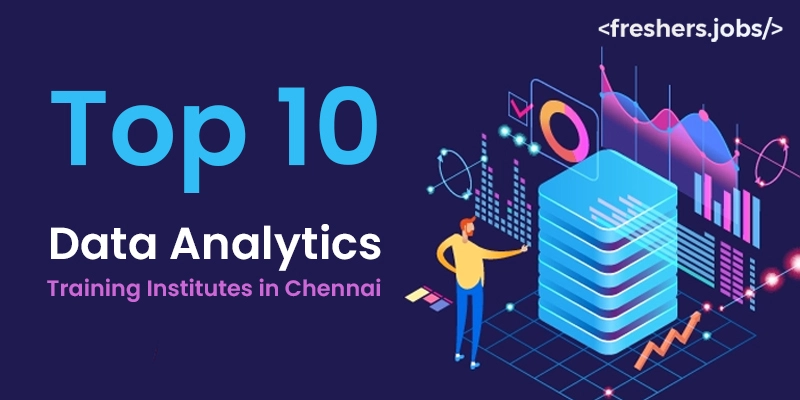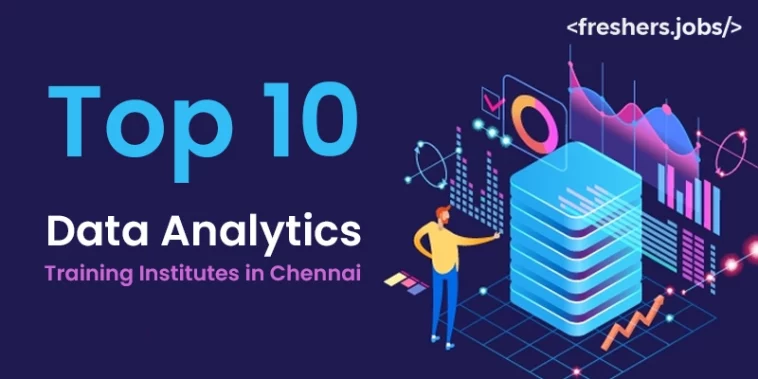With digital data’s exponential growth, businesses recognize the immense value of leveraging data analytics to gain actionable insights. Data analytics has become a linchpin for data-driven decision-making, allowing companies to extract meaningful patterns and trends from vast datasets. The competitive landscape is increasingly being defined by those who can effectively harness and interpret data, giving rise to a greater demand for skilled data analysts and scientists. Beyond just a tool for Business Intelligence, Data Analytics has become integral to improving operational efficiency, optimizing processes, and allocating resources more effectively.

Businesses leverage analytics better to understand customer behavior, preferences, and market trends, enabling them to tailor products and services for enhanced customer satisfaction. As personalization becomes a key driver in customer engagement, Data Analytics is an indispensable asset for organizations aiming to stay ahead in a dynamic and data-centric business environment. We will explore the top 10 Data Analyst Training Institute in Chennai. We will also explore its role, merits, key aspects, and job opportunities in the field.
Below are the Top 10 Data Analyst Training Institute in Chennai.
- FITA Academy
- Simplilearn
- Intellipaat
- Edureka
- 360DigiTMG
- Besant Technologies
- Greens Technologys
- Datamites
- ExcelR
- Aimore Technologies
1. FITA Academy
FITA Academy, a highly esteemed institution in Chennai, provides a comprehensive range of 120+ online and offline courses. The academy consistently maintains a prominent position in the industry, specializing in delivering essential technical and professional certifications. With a dedicated team of 1,000+ trainers, each possessing decades of experience, the institute has positively influenced the educational journeys of more than 75,000 individuals. The strategic establishment of branches in Bangalore, Pondicherry, Coimbatore, and Madurai underscores FITA Academy’s dedication to exceptional training. This deliberate expansion ensures that individuals in different regions access high-quality training opportunities.
Why opt for Data Analytics Training in Chennai at FITA Academy?
FITA Academy’s Data Analytics Training in Chennai provides comprehensive insights that help students master essential concepts like Hypothesis Testing, Data Extracts, Regression Analysis, Descriptive and Inferential Statistics, and Data Blending. After the training, participants will develop proficiency in crucial tools and technologies such as Tableau, R, SAS, Data Visualization, Python, Power BI, and Excel. The training at FITA Academy includes hands-on experience through two real-time capstone projects, allowing students to gain practical insights into Data Analytics. Successful completion of the course results in a valuable certification for participants. FITA Academy provides budget-friendly training options with flexible batch schedules, catering to the preferences of both weekends and weekdays. Upon successful completion, trainees can avail support in securing job placements.
Customized Syllabus in Data Analytics Course in Chennai
The Data Analytics Course in Chennai at FITA Academy imparts a theoretical understanding of the core principles of Data Analytics and offers practical applications in real-world scenarios. The curriculum ensures proficiency in essential data analytics tools and programming languages, including Tableau, R, SAS, Data Visualization, Python, Power BI, and Excel. This training keeps students abreast of the latest industry tools and technologies in Data Analytics. Participants will gain expertise in developing Statistical Predictive models, interpreting results, and addressing business challenges.
Expert Trainers for the Data Analyst Course in Chennai
FITA Academy is recognized as a leading institute for Data Analyst Course in Chennai, distinguished by its expert trainers who bring extensive hands-on experience to the classroom. These committed instructors impart theoretical knowledge and share valuable real-world insights, preparing students effectively for the dynamic field of Data Analytics.
Project Presentation Sessions
The Data Analytics Course in Chennai at FITA Academy includes project presentation sessions, emphasizing the significance of practical experience in mastering Data Analytics. These sessions allow students to apply their acquired knowledge in real-world scenarios, providing valuable hands-on exposure and enhancing their skills.
Complimentary Placement Sessions
As part of its comprehensive Data Analyst Course in Chennai, FITA Academy provides complimentary placement sessions to guide students in reaching their career goals. These sessions include resume building, refining interview skills, job placement assistance, and career guidance. With a vast network of over 1,500 partner companies, FITA Academy facilitates job placements, ensuring diverse opportunities within the industry. This extensive network guarantees students access to promising career prospects, facilitating a smooth and successful transition into the professional world.
2. Simplilearn
Simplilearn is a reputable online platform offering a Data Analytics Course covering fundamental to advanced concepts. While the institute offers diverse courses, their course price might be relatively high when compared to other Institutes.
3. Intellipaat
Intellipaat focuses on delivering Data Analytics Courses to enhance skills and provide valuable industry knowledge. However, the predominant emphasis on online courses may diminish direct interaction between learners and trainers, making it less favorable for those seeking a more immersive learning experience.
4. Edureka
Edureka specializes in providing Data Analytics Classes for both beginners and advanced learners, featuring a curriculum enriched with valuable learning materials. However, the strong focus on online classes might affect the direct interaction between instructors and students, and the course cost may be relatively higher compared to alternative institutes.
5. 360DigiTMG
360DigiTMG specializes in delivering Data Analytics Classes for both beginners and advanced learners, offering a curriculum enriched with valuable learning materials. However, they may not offer extensive practical training when compared to other institutes.
6. Besant Technologies
Besant Technologies offers comprehensive Data Analytics Classes with real-time assistance. Despite these provisions, it may not be the top choice for individuals seeking a more profound learning experience.
7. Greens Technologys
Greens Technologys specializes in customized Data Analytics Courses designed to meet industry-specific requirements. However, it may not provide extensive placement support when compared to certain other institutes.
8. Datamites
Datamites provides an extensive Data Analytics course to equip learners with essential skills. However, it may not be the most suitable choice for those seeking a more extensive and profound learning experience compared to other institutes.
9. ExcelR
ExcelR excels in providing comprehensive Data Analytics Classes covering a variety of concepts. Despite these advantages, the level of placement support provided might be relatively less extensive compared to certain other institutes.
10. Aimore Technologies
Aimore Technologies is known for providing specialized Data Analytics Classes tailored to industry-specific needs. However, they may not provide comprehensive practical training when compared to other institutes.
These institutes were thoughtfully selected by Freshers Jobs through rigorous research, considering factors such as brand reputation, student feedback, and a demonstrated history of student accomplishments.
Role of Data Analytics in the Current Business Environment?
Data analytics is pivotal in the current business environment, catalyzing informed decision-making and strategic planning. As organizations work with vast amounts of data, analytics emerges as the key tool to extract meaningful insights. By employing statistical analysis, data mining, and machine learning techniques, businesses can identify patterns, trends, and correlations within their datasets, empowering them to make data-driven decisions. This enhances operational efficiency and enables a deeper understanding of customer behavior, preferences, and market dynamics. The insights derived from data analytics are instrumental in shaping marketing strategies, optimizing supply chains, and improving overall business performance. Furthermore, data analytics contributes to risk management by identifying potential issues and predicting future trends. Integrating data analytics in the business landscape fosters agility, innovation, and a competitive edge in an increasingly dynamic and data-centric world.
What is Data Analytics?
Data analytics examines, interprets, and models raw data to extract meaningful insights, draw conclusions, and support decision-making. In the contemporary context, where businesses and organizations generate vast amounts of data, data analytics involves employing statistical analysis, machine learning algorithms, and other advanced techniques to uncover patterns, trends, and correlations within datasets. It encompasses a range of approaches, including descriptive analytics to summarize and describe data, diagnostic analytics to identify the causes of past outcomes, predictive analytics to forecast future trends, and prescriptive analytics to recommend actions based on analysis. Data Analytics aims to convert raw data into aiding businesses, actionable information in making informed decisions, optimizing processes, and gaining a competitive advantage in their respective industries. Whether used for understanding customer behavior, improving operational efficiency, or guiding strategic initiatives, data analytics has become an integral tool for organizations seeking to harness the power of data in the pursuit of success and innovation.
Significance of Data Analytics
- Informed Decision-Making: Data analytics allows organizations to make informed and evidence-based decisions. By analyzing historical & current data, businesses can identify patterns, trends, and potential risks, leading to better decision-making processes.
- Operational Efficiency: Businesses can optimize their processes and improve efficiency by analyzing data. This includes streamlining operations, identifying bottlenecks, and enhancing overall productivity.
- Competitive Advantage: Companies that effectively leverage data analytics acquire a competitive edge. Analyzing market trends, customer behavior, and competitor activities allows businesses to stay ahead & make strategic moves.
- Customer Insights: Understanding customer behavior is crucial for businesses. Data analytics helps gather insights into customer preferences, purchasing patterns, and satisfaction levels. This information can be used to customize products & services to meet customer requirements more effectively.
- Risk Management: Data analytics plays an essential role in finding & reducing risks. By analyzing historical data & finding patterns, organizations can expect potential risks & take proactive measures to minimize their impact.
- Personalization: Businesses can enhance customer experience by using data analytics to personalize products, services, and marketing strategies. Tailoring offerings to individual preferences can improve customer satisfaction and loyalty.
- Healthcare Improvement: In healthcare, data analytics is used for patient diagnosis, treatment optimization, and predicting disease outbreaks. It helps healthcare providers deliver better and more personalized care.
- Financial Analysis: In the financial sector, data analytics is instrumental in fraud detection, risk assessment, and investment decision-making. It allows financial institutions to analyze market trends and make data-driven investment decisions.
- Supply Chain Optimization: Data analytics helps optimize supply chain operations by providing insights into demand forecasting, inventory management, and logistics. This results in cost savings & improved supply chain efficiency.
- Scientific Research: In scientific research, data analytics is used for data interpretation, pattern recognition, and hypothesis testing. It accelerates discovery and helps researchers draw meaningful conclusions from complex datasets.
- Smart Cities and IoT: In the context of smart cities & the IoT (Internet of Things), data analytics is used to analyze data from various sensors and devices. This information is valuable for urban planning, resource management & improving residents’ overall quality of life.
Key Components of Data Analytics
Data Collection
- Data Sources: Identifying and collecting relevant data from various sources, including databases, spreadsheets, sensor data, social media, logs, etc.
- Data Extraction: Extracting data from structured and unstructured sources for further analysis.
Data Storage
- Databases: Storing and organizing data in databases, which can be relational databases, NoSQL databases, or data warehouses.
- Data Warehousing: Aggregating and storing large volumes of structured and unstructured data for analysis.
Data Cleaning and Preprocessing
- Data Cleaning: Removing errors, inconsistencies, and outliers from the dataset to ensure accuracy and reliability.
- Data Transformation: Converting raw data into an appropriate format for analysis, which may involve normalization, encoding, or feature engineering.
Data Exploration and Descriptive Statistics
- Exploratory Data Analysis (EDA): Analyzing and visualizing data to discover patterns, trends, and relationships.
- Descriptive Statistics: Calculating summary statistics like mean, median, standard deviation, and percentiles to describe the characteristics of the data.
Data Modeling
- Statistical Models: Applying statistical models to analyze relationships and make predictions based on the data.
- Machine Learning Models: Utilizing machine learning algorithms for predictive modeling, classification, clustering, and regression analysis.
Data Visualization
- Charts and Graphs: Creating visual representations of data using charts, graphs, and dashboards to communicate insights effectively.
- Data Storytelling: Narrating the findings and insights derived from the data through visualizations and reports.
Data Analysis Tools
- Programming Languages: Using Python, R, or SQL for data analysis and manipulation.
- Analytics Software: Employing specialized tools and software like Jupyter Notebooks, Tableau, or Power BI for data analysis and visualization.
Data Interpretation and Decision-Making
- Interpretation: Deriving meaningful insights from the analyzed data and translating them into actionable information.
- Decision Support Systems: Providing decision-makers with the information and recommendations for informed decision-making.
Data Security and Governance
- Data Security: Implementing measures to ensure data confidentiality, integrity, and availability.
- Governance: Establishing policies & procedures for managing and controlling access to data, ensuring compliance with regulations.
Continuous Improvement
- Feedback Loop: Expressing a feedback loop for continuous improvement based on the results of data analysis.
- Optimization: Iteratively refining models and analyses to enhance accuracy and relevance over time.
Job Opportunities in Data Analytics
- Data Analyst: Entry-level data analysis, data cleaning, and reporting. Involves working with datasets to extract meaningful insights. They have skills like Basic data analysis skills, proficiency in tools like Excel and SQL, and some knowledge of statistical concepts.
- Business Intelligence Analyst: They focus on business data analysis, generating reports, and providing insights to support business decision-making. They have skills in Data visualization tools (e.g., Tableau, Power BI), SQL, and basic statistical analysis.
- Research Assistant (Data): They assist in data collection, analysis, and interpretation. They have skills in Research methodology, data collection techniques, and basic statistical analysis.
- Data Scientist: They apply advanced statistical & machine learning techniques to analyze complex datasets & derive actionable insights. They know Programming (Python, R), machine learning, data modeling, and statistical analysis.
- Business Analyst (Data): Theybridge the gap between IT and business by analyzing data and providing insights to improve business processes. They have Business acumen, data interpretation, SQL, and data visualization skills.
- Data Engineer: They design, develop, and manage data architecture, databases, and processing systems. They have skills in Database management (e.g., SQL, NoSQL), ETL (Extract, Transform, Load) processes, and programming skills.
- Senior Data Scientist: They lead complex data science projects, developing and implementing machine learning models, and providing strategic insights. They know about Advanced machine learning, deep learning, leadership, and strategic thinking.
- Data Architects: They design and manage the overall data architecture of an organization, ensuring data integrity and security. They have Database design, data modeling, architecture planning, and leadership skills.
- Director/Head of Analytics: They willoversee the entire analytics function, setting the strategic direction and ensuring that analytics aligns with business goals. They should have skills like Leadership, strategic planning, strong business acumen, and extensive experience in analytics.
- Healthcare Data Analyst, Marketing Data Analyst, etc: They will apply data analytics skills in a specialized industry or domain, focusing on specific challenges and opportunities. They need Domain-specific knowledge, data analysis skills, and industry expertise.
- Machine Learning Engineer: They will develop and deploy machine learning models, collaborating with data scientists and software engineers. They have skills in Advanced machine learning, programming skills, and model deployment.
- AI Ethicist: They will address ethical considerations and potential biases in AI and data-driven decision-making processes. They have skills like Ethics, legal background, and understanding of AI and data implications.
The rapid growth of digital data has undeniably transformed the business landscape, compelling organizations to recognize the essential role of data analytics in driving informed decision-making. As a linchpin for data-driven strategies, Analytics not only unveils meaningful patterns and trends from vast datasets but has also emerged as a cornerstone for operational efficiency and resource optimization. We delved into the top 10 Data Analyst Training Institute in Chennai along with its role, significance, components and job opportunities in the field.




